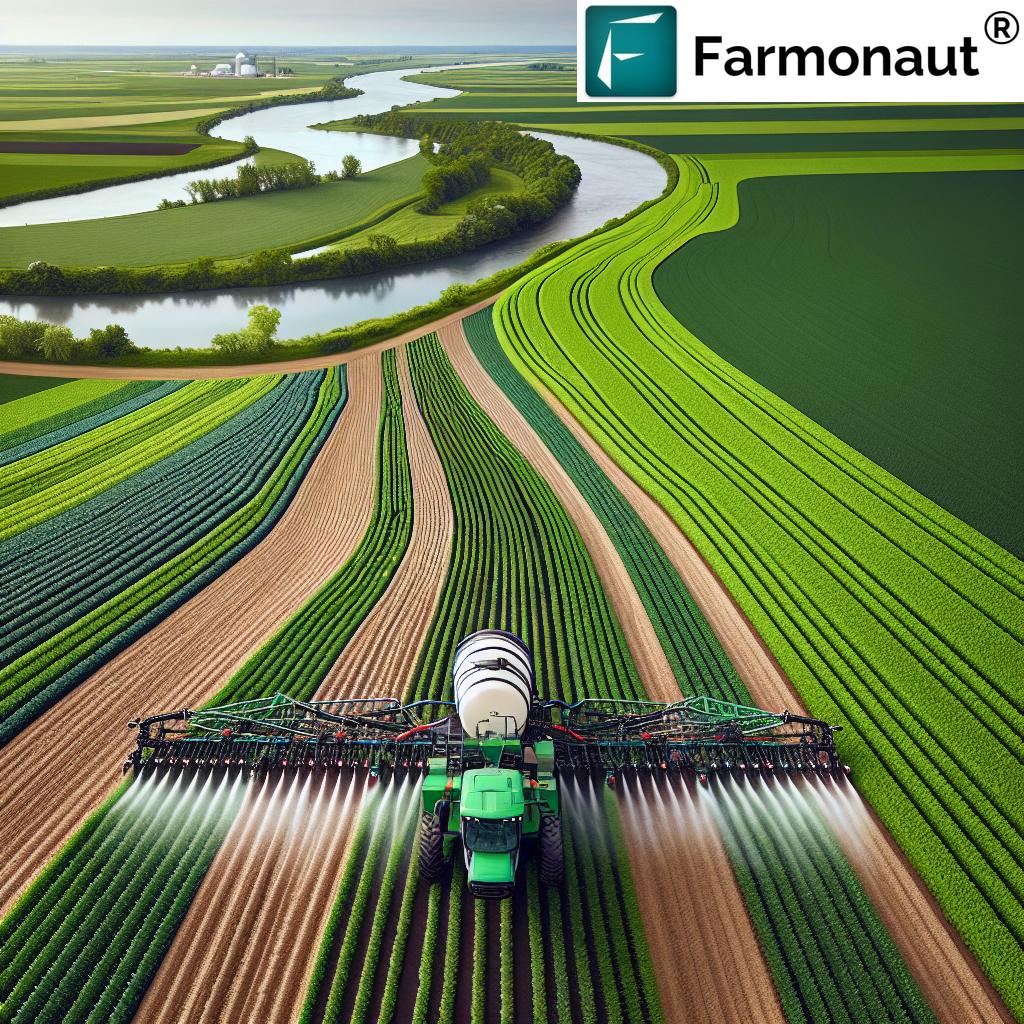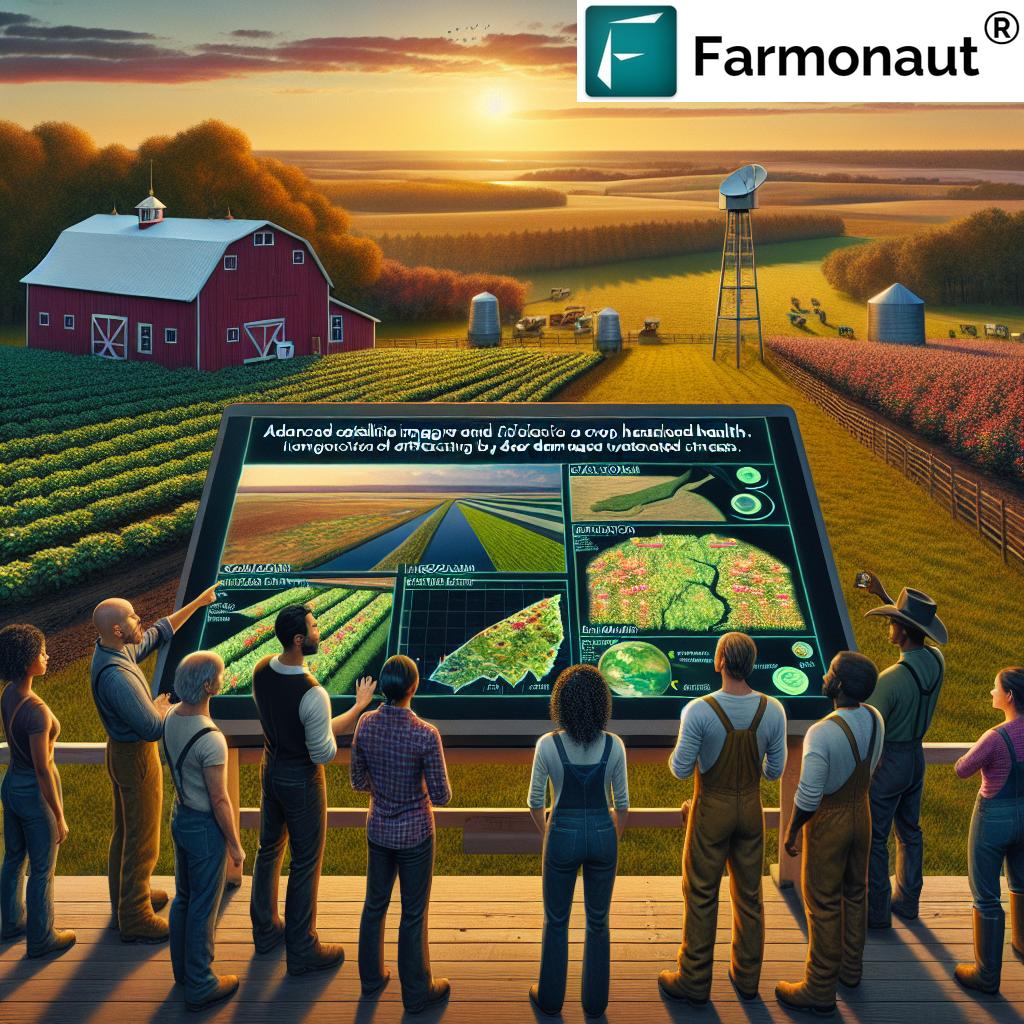Irrigation and Freezing Weather in Baton Rouge Tips: Sustainable Strategies to Protect Crops and Improve Yields
“Drip irrigation can reduce Baton Rouge farm water use by up to 60% compared to traditional overhead sprinklers.”
Understanding the Importance of Irrigation and Freezing Weather in Baton Rouge Agriculture
In the lush and vibrant region of Baton Rouge, Louisiana, irrigation and freezing weather are two factors that play a decisive role in shaping the success of agricultural, farming, and forestry operations. The area’s humid subtropical climate brings ample rainfall, but with the uncertainties of drought periods and the threat of sudden cold weather events, local farmers must master a balance of effective water management and sustainable freeze mitigation strategies.
Why are these factors so critical? Proper irrigation ensures that plants and crops receive adequate water during dry spells, optimizing soil moisture and enhancing yields, whereas proactive preparation for cold and freezing temperatures protects both annual and perennial crops, preventing losses that could otherwise threaten local agriculture.
Best Irrigation Practices for Louisiana Agriculture
Irrigation Methods in Baton Rouge: An Overview
The Baton Rouge region is characterized by its generous rainfall and humid subtropical conditions. Nonetheless, strategic irrigation methods remain essential, especially during drought or when cultivating water-intensive crops. Let’s dive into the most common irrigation methods in Baton Rouge and their unique benefits and challenges.
Furrow Irrigation
- How it Works: Water flows down furrows between crop rows, infiltrating the soil and reaching plant roots.
- Benefits: Simplicity and low-cost; suitable for row crops in flat fields.
- Challenges: Requires careful field leveling for uniform water distribution; possible waterlogged areas or dry spots if not managed well.
- Environmental Impact: Reduced efficiency in water use compared to advanced methods.
LSU AgCenter – Irrigation Resources
Sprinkler Irrigation
- How it Works: Sprinklers distribute water across fields using a pressurized system, mimicking natural rainfall.
- Benefits: Highly versatile, adaptable to various crop types and field shapes.
- Challenges: Susceptible to high evaporation losses, especially during hot days; elevated energy use.
- Environmental Impact: Better coverage but may require tight management for sustainability.
Micro-Irrigation (Drip & Trickle Systems)
- How it Works: A network of pipes and emitters delivers small quantities of water directly to the root zone of plants, improving water efficiency.
- Benefits: Promotes efficient use of resources, reduces weed pressure by keeping non-target areas dry, particularly beneficial for high-value crops.
- Challenges: Requires regular maintenance to avoid clogging.
- Environmental Impact: Exceptional sustainability due to low water waste.
Micro-Irrigation Guidance – LSU AgCenter
Drought Irrigation Response Tool (DIRT)
- What is DIRT? Developed by Louisiana State University, DIRT assists farmers in strategic water use during drought by offering irrigation scheduling recommendations based on crop type, planting date, and other data. This enables optimized water use and improves crop health.
Learn about the Drought Irrigation Response Tool
Did you know? With Farmonaut’s Satellite Weather API and Developer Docs, you can integrate real-time Baton Rouge field weather conditions directly into your own systems to enhance irrigation scheduling for improved crop management.
Furrow vs Sprinkler Irrigation: Which Is Better for Baton Rouge?
Balancing furrow and sprinkler irrigation is essential for Baton Rouge farmers. Furrow irrigation can be cost-effective for large, flat fields but may lead to uneven water distribution during drought. On the other hand, sprinkler systems provide greater coverage and adaptability but require more maintenance and can be less efficient under windy or hot conditions due to increased evaporation.
For sustainable and efficient agricultural practices, many in Baton Rouge are now adopting a hybrid approach—rotating between furrow during wet months and sprinkler or drip irrigation in drought periods and for sensitive crops. These best irrigation practices for Louisiana agriculture help optimize resource use and protect yields.
Supplemental Irrigation: When and Why?
Given Baton Rouge’s rainfall, there may be periods, especially in summer and late winter, where supplemental irrigation is required. For valuable specialty or vegetable crops, or for fields with quickly draining soils, additional water ensures that plant roots maintain the proper moisture for optimal growth and prevent yield losses during drought periods.
Proper timing, method selection, and integration of available technologies like those offered by Farmonaut’s Carbon Footprinting platform can help mapping and tracking water usage, reducing waste, and supporting sustainability compliance.
Impact of Cold Weather on Crops in Baton Rouge
Sudden cold snaps and infrequent but damaging freeze events are an unfortunate reality for Baton Rouge farmers. Freezing and near-freezing temperatures can wreak havoc across different crop types:
-
Crawfish Industry:
- Impact: When water temperatures drop, crawfish activity slows dramatically, leading to reduced catches and smaller crawfish—critical for a key Louisiana industry.
- Challenge: Early-season harvests may suffer in particularly harsh winters, impacting both supply and local incomes.
-
Sugarcane:
- Impact: Freezing temperatures can lower sugar content, but most cane is harvested prior to severe cold. Remaining fields see less quality impact if harvested promptly.
-
Vegetable & Fruit Crops:
- Impact: Delicate crops like tomatoes, squash, and strawberries are prone to frost and freeze damage, leading to spoiled crops and reduced yields.
- Prevention: Use of covers can help, but extended or severe freezes can still overwhelm basic protection.
Clearly, understanding the impact of cold weather on crops and implementing effective crop management strategies for freezing weather is crucial for resilient local agriculture.
“Covering crops during Baton Rouge freezes can decrease frost damage by 70%, ensuring more sustainable harvests.”
Freeze Damage Prevention for Farmers: Proven Strategies
To weather unpredictable freezing temperatures in Baton Rouge, farmers employ a layered approach that blends tradition and innovation. These strategies for protecting crops from freezing temperatures have evolved over years of local farming experience, supported by agricultural research and extension services.
Mulching Techniques for Cold Weather
- How Mulch Protects: Applying 2 to 4 inches of organic mulch (pine straw, leaves, bark) around plants helps trap heat in the soil, keeping roots protected from sudden cold.
-
Best Practices:
- Spread mulch evenly—avoid piling directly against the base to prevent rot.
- Check moisture levels under the mulch to prevent over-damp, disease-prone conditions.
Mulching Guidance from LSU AgCenter
Covering Plants to Prevent Frost Damage
- Materials: Use sheets, quilts, row cover, frost cloth, or plastic. For large plants or bushes, build a lightweight frame to hold coverings off foliage to avoid broken branches and boost protection.
- Pro Tip: Coverings must reach the ground to trap natural soil heat beneath; remove during the day if temperatures rise above freezing.
- Combined with Mulch: Use in tandem for multi-layer protection during intense cold spells.
Covering Plants—LSU Recommendations
Watering and Moisture Management Before and During Freezes
- Moist Soil Retains Heat: Watering thoroughly before a cold front enters can help protect roots as moist soil stores more heat than dry.
- Balance: Avoid overwatering—soggy soils increase root rot risk.
- Monitor: Use soil moisture data from precision platforms (like Farmonaut’s Carbon Footprinting Tools) to guide your watering schedule.
Preparing for Baton Rouge Freezes: Kyle’s Landscape Blog
Monitoring Weather Forecasts and Timely Action
- Stay Informed: Register for text/email alerts from trusted weather authorities and agricultural extension programs.
- Farm Monitoring: Digital satellite monitoring tools (such as our Crop, Plantation & Forest Advisory App) enable real-time alerts, tailored strategies, and resource-efficient management.
Other Freeze Mitigation Strategies
- Site Selection & Variety: Choosing cold-tolerant crop varieties and higher ground for sensitive plants minimizes temperature dips.
- Windbreaks: Strategic planting of hedges or temporary barriers to reduce cold wind exposure and limit freeze penetration into fields.
- Reflective Mulch: In addition to organic material, plastic or reflective mulch can enhance soil heat retention during cold spells.
Our Blockchain-Based Product Traceability ensures sustainable supply chain transparency—even during volatile seasons. Whether you’re managing farm harvesting or proving compliance, traceability supports peace of mind and compliance for all agricultural stakeholders.
Irrigation Methods and Freeze Protection Strategies: Effectiveness & Sustainability
This table highlights the trade-offs among irrigation methods for freezing weather and freeze mitigation strategies with respect to Baton Rouge’s unique farming landscape.
How We at Farmonaut Support Baton Rouge Farmers with Precision Agriculture Solutions
As an agricultural technology innovator, we at Farmonaut are dedicated to helping Baton Rouge and Louisiana farmers harness the power of data for accurate irrigation decision-making and freeze damage prevention. Our suite of advanced solutions is designed to make precision agriculture affordable, scalable, and actionable for farmers, agribusinesses, and local authorities.
- Satellite Crop Monitoring: Track crop health, soil moisture, and field variability in real-time, so you can apply water only where and when it’s needed. Use our easy-to-access Agro-Admin App for comprehensive farm management, especially for large-scale or multi-location operations.
- AI-Based Advisory: Our Jeevn AI system processes weather data, soil images, and field reports, providing actionable recommendations for pest, nutrient, and water management. This helps tailor irrigation scheduling and freeze protection to each unique field or crop.
- Crop Insurance & Loan Verification: For financial security during drought or freeze-induced crop loss, our Crop Loan and Insurance Product provides reliable satellite-based verification for secure, swift processing and reduced fraud.
- Fleet & Resource Management: Efficient fleet management cuts costs and ensures seamless field operations, even during periods of inclement weather, by optimizing vehicle and equipment use.
- Blockchain Traceability: Transparency from field to marketplace via our blockchain-based traceability toolkit boosts consumer confidence and regulatory compliance.
By prioritizing sustainability and environmental care, we at Farmonaut help ensure Baton Rouge farming is resilient against both droughts and freezes—today and in the seasons ahead. Access all features via our web app, Android app, or iOS app.
FAQ – Irrigation and Freezing Weather in Baton Rouge
- What are the best irrigation methods for Baton Rouge farmers?
- The most effective are drip/micro-irrigation for high water savings, sprinkler systems for field-wide uniformity, and furrow irrigation for larger traditional row crops. The choice should align with soil type, crop, field size, and budget. Supplemental irrigation is needed during drought and critical growth stages.
- How can farmers prevent freeze damage to crops?
- Combine several strategies: use organic mulch to insulate soil and roots, cover crops with sheets or row covers, water soil in advance of cold nights, select freeze-tolerant varieties, and monitor weather forecasts for timely action.
- What is the impact of cold weather on Baton Rouge agriculture?
- Cold and freezing weather can damage sensitive crops (like tomatoes and strawberries), slow crawfish, and reduce sugarcane quality if not harvested in time. Coordinated freeze protection and smart water management minimize yield loss.
- How do Farmonaut’s solutions support irrigation and freeze mitigation?
- We deliver satellite-based soil moisture and crop health monitoring, AI-driven management advice, and resource tracking. This helps Baton Rouge farmers apply water efficiently and prepare for sudden freezing events, improving both crop yields and sustainability.
Conclusion: Boosting Sustainable Yields in Baton Rouge
In the diverse and prosperous landscape of Baton Rouge, mastering the interplay of intelligent irrigation and robust freeze protection strategies is foundational for successful crop management. While the region’s humid subtropical climate delivers significant annual rainfall, sudden cold spells challenge the resilience of both commercial-scale and smallholder operations.
Adopting a combination of modern and traditional irrigation methods (such as drip, sprinkler, and furrow systems) alongside proven freeze prevention strategies (mulching, crop covers, soil moisture management) ensures Baton Rouge and Louisiana farmers not only avert damage, but thrive year after year.
Leveraging the latest farm management technologies—including real-time satellite monitoring, AI-powered advisory systems, and blockchain for supply chain trust—enables proactive, sustainable, and profitable decisions. We at Farmonaut remain committed to empowering local agriculture through these advanced platforms, bringing cost-effective precision agriculture to every farm, field, and orchard in Baton Rouge.
Take charge of your field’s future—integrate smarter irrigation and freeze prevention with Farmonaut today.












